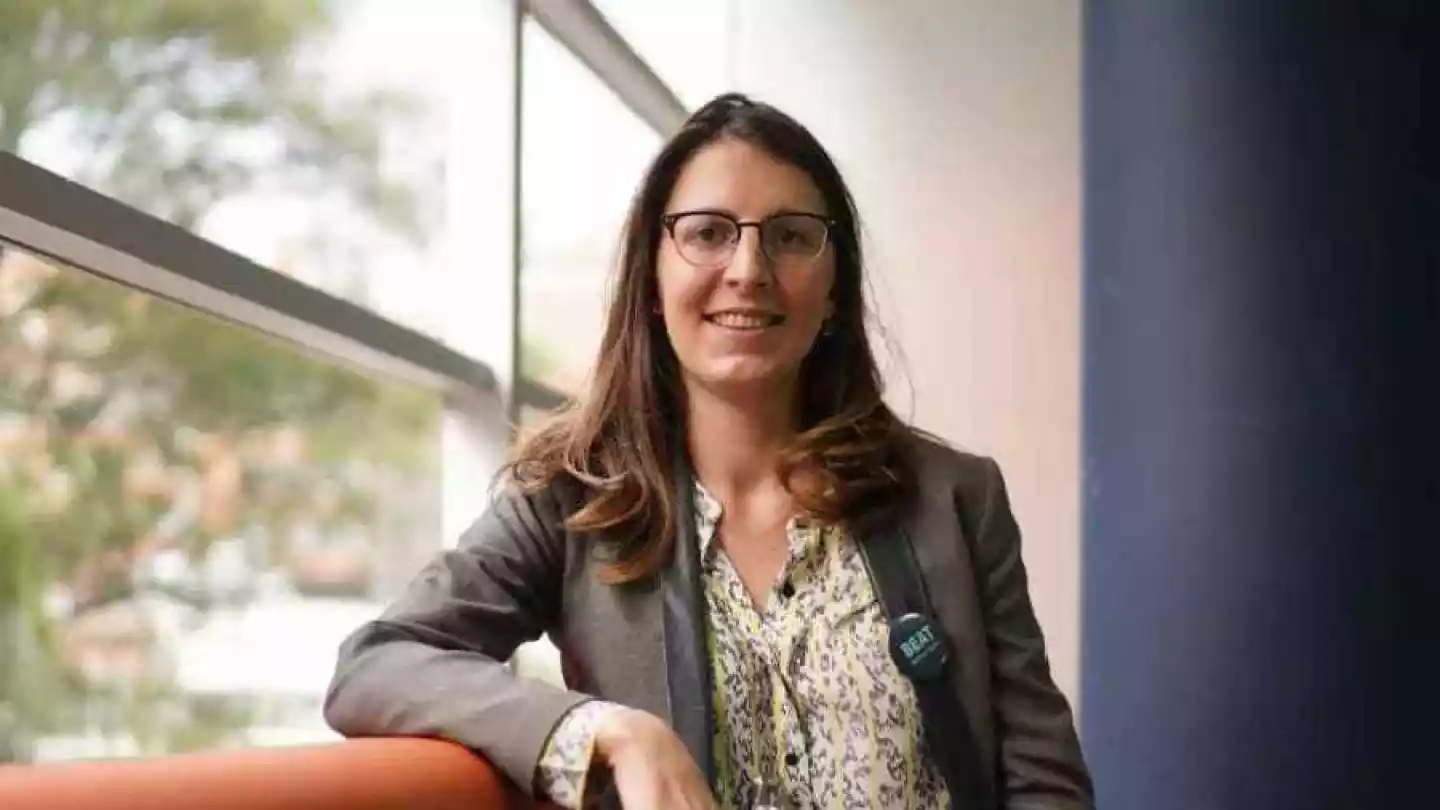With Onuava, you are both addressing the taboo topic of infertility and motivating employers in the region of Germany, Austria, and Switzerland to better support their employees during this life stage. What was the impetus behind launching Onuava?
Founding Onuava was clearly motivated by my own journey. I have three wonderful children thanks to fertility treatment, but the path to parenthood was not an easy one for me and I am well-aware of how lucky I was in the end, especially given that we had the financial means to afford treatment. Wanting to support people who experience infertility and helping them increase their chances of success is one of the main motivations behind Onuava.
In most parts of the world, infertility is still a taboo topic. But it is not a niche topic! One in six people worldwide experience infertility throughout their lifetime—men and women alike, and many needing fertility treatment in order to conceive. If you include members of the LGBTQ+ community looking to form a family and those who suffer a miscarriage after conceiving naturally, a significant share of any companies’ employees struggle on their path to parenthood.
The financial, emotional, and physical consequences of this fertility and family-building journey not only impact people privately, but also affects their working life. Ninety percent experience symptoms of depression, 85% state that fertility treatment impacts their work life, and about 1 in 4 women reduce their working hours or quit their job while undergoing treatment. On the flip side, employees who are well-supported by their employer during this difficult life stage are more motivated, more loyal, remain longer with their employer, and are more likely to return to their employer after maternity leave. Offering fertility and family building also positively impacts employer branding. It is indeed a win-win.
In the US, fertility and family building benefits have long been part of companies’ standard health benefit offerings. More than 40% of all US companies pay for the fertility treatment costs of their employees. A few years ago, fertility benefits arrived in the UK and while living there, I could see firsthand how more and more companies decided to offer this benefit.
When returning to Germany during the pandemic, I decided to make it my professional life’s mission to bring this benefit to Germany and continental Europe, and this is how Onuava came to life.
How is Onuava reshaping employer branding for companies at a time when labor shortage means that employees can choose whom they want to work for? What impact do fertility benefits have on the reproductive health sector and how do they help increase fertility awareness?
In the region of Germany, Austria, and Switzerland, like much of the rest of the world, we’re grappling with significant labor shortages, especially in high-skilled roles—a trend that’s expected to worsen due to demographics in the coming years. Consequently, we’ve seen a shift where employees can pick employers and demand better conditions, favoring family-friendly workplaces that allow for work-life balance. Employers, in turn, must be increasingly innovative to attract talent, especially those in rural areas or industries unable to offer flexible arrangements such as remote work. Offering fertility and family building benefits can help companies establish themselves as family-friendly employers, signaling support for employees in forming families.
Fertility benefits can have a significant impact on the reproductive health sector by increasing accessibility to fertility treatments and services for individuals and couples. By including fertility benefits in employee healthcare packages, companies can help alleviate the financial burden associated with fertility treatments such as in vitro fertilization (IVF), fertility medications, and fertility preservation procedures (egg freezing). This increased access to fertility services can lead to earlier intervention and greater success rates for those seeking to conceive. We have seen in the US that this contributes to the growth of the reproductive health sector.
Furthermore, offering fertility benefits can also help increase fertility awareness among employees. By including coverage for fertility assessments, counseling, and educational resources, companies can empower individuals to better understand their reproductive health and make informed decisions about family planning. This can lead to earlier conversations about fertility concerns and potential issues, ultimately improving outcomes and reducing the stigma surrounding infertility.
Offering fertility and family building benefits can help companies establish themselves as family-friendly employers, signaling support for employees in forming families."
What were the biggest challenges you faced while creating Onuava? How did you tackle them, and how have you grown from the experience? Conversely, what are some of the most rewarding parts of your work?
Founding a start-up isn’t easy—especially when you are addressing taboo topics and require a certain level of cultural change. One of the biggest challenges is to get people to talk more openly about the topic of (in)fertility and for companies to realize that not talking about it in the workplace doesn’t mean it isn’t a topic that affects the workplace. To achieve this, we have invested in awareness building to educate HR staff and the general public about the topic.
The most rewarding part of our work is clearly when members contact us to let us know about a positive pregnancy test after their treatment. These are the moments when you realize the positive impact Onuava has on people’s lives.
While at BCG, one hones a variety of strategic consulting principles. How have you found this skillset valuable to your ways of working and applicable to the development of Onuava’s business model and strategic growth?
One of the core skills that I developed while at BCG was analyzing and understanding market trends and underlying drivers. What drives a certain development? Are these drivers replicable in other markets? Which business models work best under certain assumptions? These are the questions that you have in almost every project, and as consultants, we are trained to answer these questions in a fact-based manner.
When doing the relevant research and analysis before founding Onuava, I concluded that a lot of the supportive market drivers that applied to the US and the UK were similar in the Germany/Austria/Switzerland region: increasing infertility levels, increasing treatment cost, labor shortages, changing employee requirements toward their employers, increasing importance of family and well-being health offerings in recruiting and employee retention. However, there are reasons why continental European countries are lagging behind when it comes to workplace health and well-being support, and in particular, fertility support: more conservative attitudes, expectation that public health insurance should cover health costs.
Therefore, we have built an offering that takes into account these market specifics and offers attractive entry models for employers. We have also ensured that our business model is flexible and allows us to scale up—but at the same time not incur excessive initial fixed costs when growth cycles are longer than expected.
In addition to all the BCG-related learnings that I clearly benefitted from, there were also things I did not learn while at BCG, largely because I never had to deal with them given the size and maturity of the business. It is all the small nitty-gritty details of starting a company—all the contractual aspects, including, for example, writing terms and conditions, setting up a structured sales process, and even things such as how to write an invoice and set up a process and system around it. Fundraising and convincing investors is another one of those topics I just never had to worry about when at BCG.
These practical aspects of business building are where my co-founder, Katharina Jung, comes in. For her, it is her second start-up, which means there are lots of typical first-time mistakes which we will not make given she has seen a lot of it before.
Do you have a memorable piece of advice you have received that you’d like to share with fellow BCG alumni, especially for entrepreneurs?
One piece of advice I was given the other day was that “presents don’t always come with a bow.” Meaning, sometimes things that at first don’t seem like a “present” can turn out to be the best opportunities—personally or professionally. Always making the most out of, and seeing the opportunity in, every situation is a key skill for any entrepreneur. Life as an entrepreneur can be challenging, and circumstances can change so quickly. Very often, you need to pivot and adapt your business, and something that might not have seemed like it can turn out to be the best present ever.



